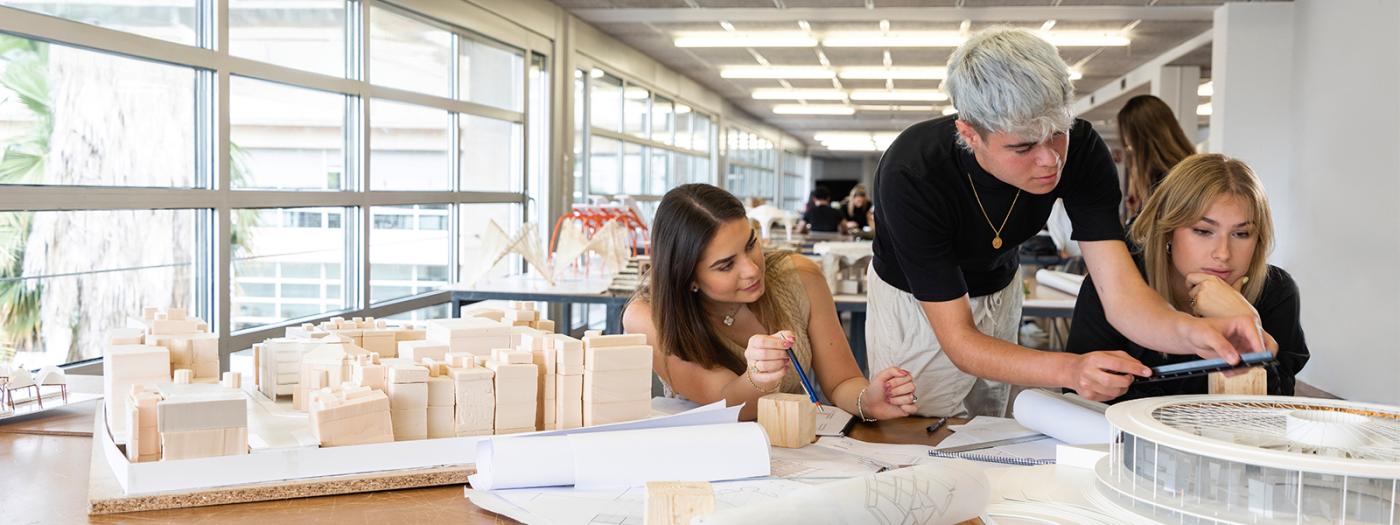Ability to solve basic exercises in thermodynamics, acoustics, optics, and hygrothermics.
· Ability to solve basic exercises in the principles of fluid mechanics, hydraulics, electricity, and electromagnetism.
· Adequate understanding of physical problems and various technologies, as well as the role of buildings in providing internal comfort conditions and protection against climatic factors.
· Introduction to the implementation of building systems. Anticipation of spaces and understanding of different schemes.
Fluid Physics Concepts:
- Density
- Pressure
- Pascal's Principle
- Archimedes' Principle
- Surface Tension and Capillarity
Introduction to Thermodynamics:
- Heat Transport Mechanisms:
- Conduction
- Convection
- Radiation
- Heat Dissipation
- Matter and Heat:
- Thermal Conductivity
- Specific Heat
Comfort: Parameters and Factors:
- Hygrothermal
- Acoustic
- Lighting
- Cultural
- Physiological
The Building as an Ecosystem:
- Energy
- The Building as an Energy Exchanger
- The Building as Habitable Space
History of Environmental Conditioning:
- Approach (Natural vs. Energy-based)
- Folk Architecture
Hygrothermal Behavior of Buildings:
Physical Concepts, Loads, and Energy Exchanges:
- Transmission
- Solar Radiation
- Occupancy
- Lighting
- Equipment
- Outdoor Air Supply
- Thermal Inertia
Introduction to Lighting Energy:
- Physics of Light
- Light Measurement: Sound Units
- Light in Architecture
- Basic Concepts of Natural Lighting Design
- Basic Concepts of Artificial Lighting Design
Introduction to Acoustic Energy:
- Physics of Sound
- Sound Measurement
- Matter and Sound
- Acoustic Isolation Concepts
- Acoustic Absorption Concepts
Thermal Behavior of Buildings: Passive Strategies in Design:
- Placement
- Relationship with the Environment
- Shape
- Microclimate
- Orientation
- Mass/Hollow
- Ventilation
- Thermal Inertia
- Solar Protection
- Insulation
Thermal Behavior of Buildings: Introduction to Active Strategies in Design:
- Ventilation
- Heating
- Cooling
- Air Conditioning
Acoustic Behavior of Buildings:
Conditioning of Spaces: Design Strategies and Analysis of Construction Systems
Airborne Sound Insulation: Design Strategies and Analysis of Construction Systems
Impact Sound Insulation: Design Strategies and Analysis of Construction Systems
Problem-solving and exercise classes
Laboratory practices
Seminar
Self-paced learning
Project-based learning
Flipped classroom
Peer instruction
Challenge-based learning
Lecture
Examinations
Assignments
Internal/external reports
Exercises, problems, and practical work
Group/individual presentations
Self-assessment
Class participation/attendance tracking
